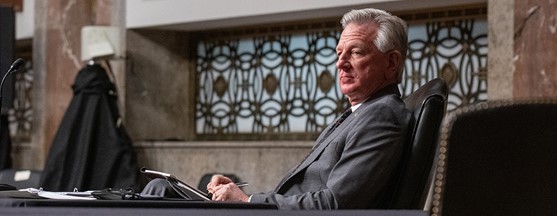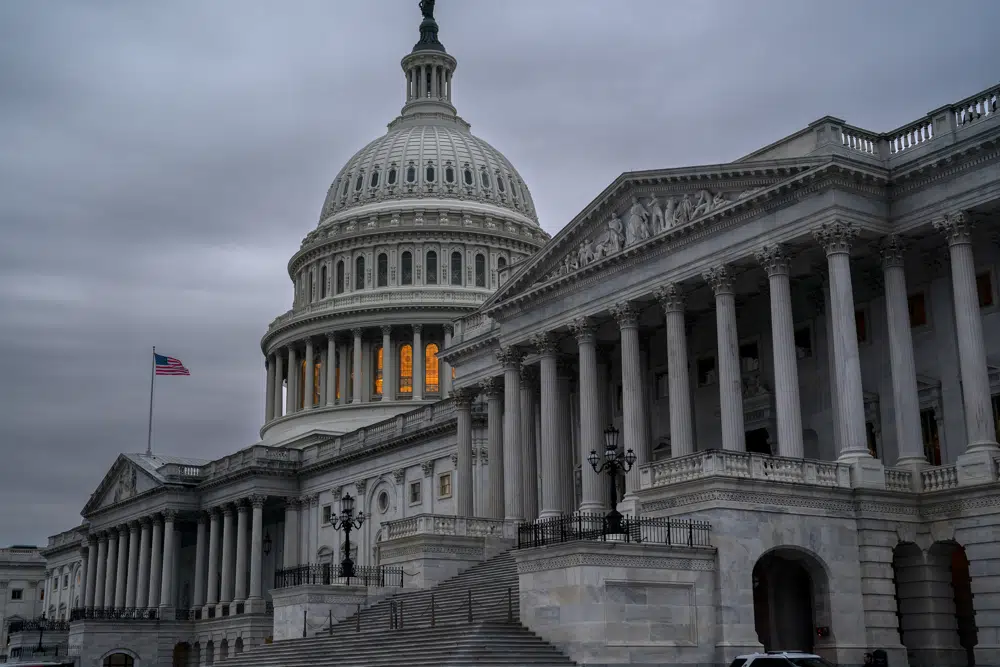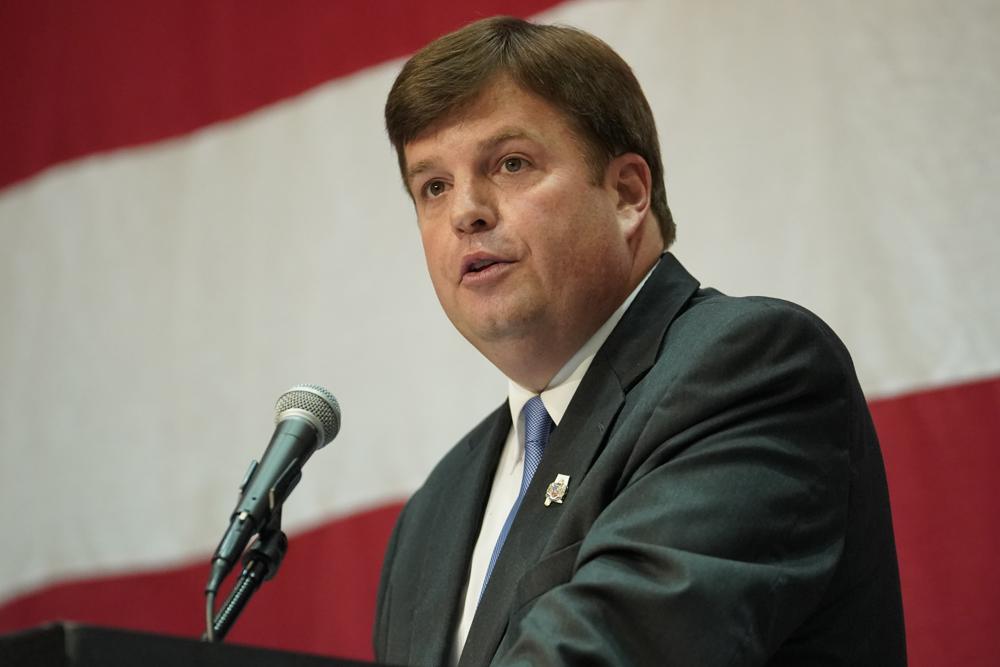Alabama’s top ten stories in 2022

2022 is winding down. Now is a good time to look back on the year that was and remember the political news that impacted our lives here in Alabama. Katie Britt wins the Senate. Britt had never held a public office before, was not a self-made multi-millionaire with her own corporation, was not a war hero, and was not a household name. Yet the mom from Enterprise managed to put together a diverse band of supporters that included among its ranks both the rich and powerful and thousands of just everyday ordinary Alabama folks. Alabama does not change Senators very often. Richard Shelby, whom she replaces, spent the last 44 years in Congress. At age 40, Britt is young enough to potentially duplicate that feat. Republicans hold onto their supermajorities in the Alabama Legislature. The Alabama Legislature is nationally recognized as the most conservative legislature in the entire country. Republicans entered the 2022 election cycle with the daunting challenge of defending 77 seats in the Alabama House of Representatives and 27 seats in the Alabama Senate. Alabama voters showed that they liked what the legislature did in the last four years and will enter the new quadrennium with the same historic filibuster-proof majorities they had in the previous four years. Republicans in the legislature can work across the aisle in the spirit of bipartisan cooperation if they want to. They can also ram through whatever red-meat agenda items that the GOP wants. Alabama Democrats in the legislature can do little to stop them. Alabama prisons are still horrible. Alabama prisons are overcrowded, woefully understaffed, do a poor job of rehabilitating prisoners, and according to a report by the Department of Justice, are the most dangerous in the country. This has all been well documented. The only conclusion that is possible to reach is that the people of Alabama just don’t care how we treat our prisoners. The Bureau of Pardons and Paroles has been hesitant to release prisoners. The state has 70, 80, and even 100-year-old prisons housing far more prisoners than they were designed to hold. The state has had to suspend executions because of botched attempts in which the state failed in its efforts to kill the condemned man. The state is trying to hire more prison guards, and the Alabama Department of Corrections has begun work on building two new mega prisons in Elmore and Escambia Counties. Time will tell if these efforts will satisfy the federal government, which is suing the state because they believe our prisons are so wretched that incarceration in Alabama constitutes a “cruel and unusual punishment” in violation of the Eight Amendment of the Bill of Rights. Kay Ivey was re-elected as governor. Ivey entered 2022 as the oldest governor in the country and one of the most popular. Ivey was challenged by a self-made millionaire, a former governor’s son, successful businessmen, a mayor and former legislator, a prison guard and former county commissioner, and a conspiracy theorist preacher in the Republican primary. They all blasted Ivey’s tenure as governor and said they could do a better job. The voters ignored millions of dollars in negative ads, rumors about the governor’s health, and her refusal to debate, and Ivey won the GOP primary without a runoff. Ivey then faced a woefully underfunded Democrat, a Libertarian, and two write-in candidates. Seventeen people ran for governor in 2022, and Ivey coasted to re-election. The Alabama Democratic Party imploded. America has a two-party system. Democrats have a one-seat majority in the U.S. Senate, and Republicans have a slim majority in the U.S. House of Representatives. Democrats won the presidential election in 2020, and Republicans won in 2016. Either party could be in charge in 2024. The nation could not be more evenly divided – not so in Alabama. Every Republican nominee for a statewide office prevailed in Alabama’s 2022, and it was not even close. In fact, the Republican domination surprised no one as only one Democrat, Doug Jones in 2017, has won a statewide race since 2008. The Alabama Democratic Party (ADP) was hemorrhaging money so badly that the state director and most staff quit weeks before the election. ADP Chairman State Rep. Chris England announced leadership elections before the elections and that he was not running again. Randy Kelley, deposed with the blessing of the Democratic National Committee in a bizarre ADP power struggle in 2019 as vice chair, was elected Chairman of the ADP in August. The Joe Reed and Alabama Democratic Conference-supported Chairman found the party with no money, weak candidates, no donors, and no hope. The party was effectively steamrolled outside of majority-minority Black legislative districts. Alabama legislature passed permitless carry. Despite the best efforts of anti-gun groups and the Alabama Sheriffs Association, constitutional carry passed the Alabama Legislature in 2022. Every Alabamian who still has their gun rights will be able to carry their handguns concealed on their person or in their vehicle without purchasing a permit from their local sheriff starting Sunday, January 1. The concealed carry bill was the most controversial item to pass the legislature in 2022. State Rep. Shane Stringer and State Sen. Gerald Allen successfully carried that legislation to the finish line. Legal medical marijuana moved much closer to reality. The Alabama Medical Cannabis Commission passed rules and regulations for the new industry in 2022, and the deadline for persons to turn in an application to get a state of Alabama license to be a marijuana grower, processor, transporter, dispenser, or operate an integrated facility that does all of the above in house is on Friday, December 30. The Commission will award the licenses in June, and the first legally sold Alabama-raised marijuana will be available by late 2023. Financial strength prevailed in 2022. Unemployment is historically low, wages are rising, and the state is receiving record streams of tax money. In 2022 the state legislature passed record education trust fund and state general fund budgets for fiscal year 2023 and rolled hundreds of millions of dollars in surplus funds from fiscal year 2022 into FY2023. Not only is proration in the coming session not likely, but there is also the
Designating Alabama’s Black Belt as a National Heritage Area passes both the House and Senate

U.S. Representative Terri Sewell celebrated as her bill, H.R. 3222, the Alabama Black Belt National Heritage Area Act, passed the House and Senate on Thursday. The legislation will designate the 14 counties of Alabama’s Black Belt as a National Heritage Area, preserving the region’s rich history while creating new funding and tourism opportunities. H.R. 3222 passed the House in July 2022 by an overwhelmingly bipartisan vote of 365 to 57. An amended version was included in S. 1942, the National Heritage Act, which passed the Senate unanimously on December 20, 2022. On Thursday, the House passed the amended version by a vote of 326 to 95, sending it to President Joe Biden’s desk to be signed into law. “Today is a truly historic day for Alabama’s Black Belt!” said a jubilant Sewell. “For the first time, many historic areas in the Black Belt will be designated as a National Heritage Area, freeing up additional federal resources for historic preservation, tourism, and economic development. Passage of this bill is the culmination of years of tireless advocacy and negotiation on behalf of the residents of the Black Belt!” “As the birthplace of the Civil Rights and Voting Rights movements, the Black Belt is where some of the most consequential chapters of American history played out,” continued Sewell. “As a proud daughter of the Black Belt, I’m thrilled that this region will be getting the national recognition it deserves, and I remain endlessly grateful to my colleagues for their support in this worthwhile endeavor!” National Heritage Areas are established by Congress to assist efforts to protect and promote communities that are regarded as distinctive because of their culture, history, resources, and environment. These historic areas are authorized to receive up to $1 million in federal funding annually to preserve, protect and promote important sites. Under the Alabama Black Belt National Heritage Area Act, the University of West Alabama would collaborate with the National Park Service and Black Belt communities to determine a strategic management plan. Dr. Tina Naremore Jones is the Assistant Provost and Vice President for Economic and Workforce Development at the University of West Alabama. “Designating Alabama’s Black Belt as a National Heritage Area is a tremendous achievement and marks the culmination of more than a decade of work and support by countless volunteers and organizations not only across the Black Belt but from throughout the State of Alabama and across the nation,” said Dr. Naremore Jones. “Our grassroots organizations have been steadfast supporters of this effort, and we are thankful for Congresswoman Sewell and Senator [Richard] Shelby’s leadership in moving this legislation forward.” “This designation starts a new chapter for us and provides confirmation that this region, with its famously rich soils and landscapes and its undeniably complex history has even more to contribute to the American story,” continued Jones. “Our new heritage area will not only provide a platform in which to showcase the rich culture, history, and natural resources of the region, but it will ensure a space in which we can all learn and appreciate our shared heritage. In addition, heritage areas generate positive economic impact by building local capacity through the leveraging of shared resources. At UWA, we look forward to building on the relationships that have formed as part of these shared efforts towards designation. This is an exciting day for our region.” Alabama’s Black Belt is part of a larger crescent-shaped area known as the Southern Black Belt, which extends from Maryland to Texas. The region is named for its rich black soil. In the nineteenth century, the region became the economic heartland of the deep South due to its rich soils. The plantation system that developed there led to an economic system that played a dominant role in Alabama Politics to World War II. During the twentieth century, Alabama’s Black Belt became a hotbed of activity for the civil rights movement in the South. The area is known for stately antebellum homes, Booker T. Washington, its HBCUs, the Tuskegee Airmen, Martin Luther King Jr., the Selma to Montgomery Voting Rights March, and some of the best quail, deer, and turkey hunting in the South. Sewell was elected to her seventh term representing Alabama’s Seventh Congressional District. To connect with the author of this story, or to comment, email brandonmreporter@gmail.com.
Tommy Tuberville votes against ominibus bill while retiring Richard Shelby votes in favor

On Thursday, the U.S. Senate voted in favor of a bipartisan $1.7 billion omnibus spending bill. However, Senator Tommy Tuberville voted against the $1.7 trillion omnibus government funding package. “Democrats have expanded the size of our federal government to a point we can no longer afford,” Sen. Tuberville said in a press release. “Because of the piecemeal way Congress has approached funding the government over the past two decades, we are forced to consider massive budgets at the last minute. This makes oversight of spending nearly impossible — and worsens inflation that’s crushing working families. Americans have to live within their means while Congress burns money we don’t have. I opposed the omnibus because Congress should be responsible enough to spend no more than we can afford, just as Americans do every day.” U.S. Sen. Richard Shelby was one of the primary negotiators who crafted the final package and voted in favor of the bill. The bill was his final vote in the U.S. Senate. Shelby wrote on Twitter, “Today, in my final vote in the U.S. Senate, we funded the government – providing critical funds for national security, as well as important resources for the country and for Alabama. It’s been the honor of my lifetime, Alabama. Thank you!” “After many months of ongoing negotiations, we have reached an agreement on an omnibus appropriations package to fund the government for the remainder of the current fiscal year,” Shelby said in a statement. “Since day one, I have insisted on increasing defense funding well above the President’s request without similar increases in wasteful liberal non-defense spending. I’m pleased that this package meets the level set by the NDAA last week, which is $76 billion over last year – an increase of 10%. The non-defense funding level is an increase of only 5.5%, reducing the Administration’s wasteful non-defense budget request increase by more than half. I am also very pleased that veterans’ healthcare costs will be funded as budgeted without using accounting gimmicks designed to enable more wasteful spending. And, once again, we rejected all poison pills while preserving crucial legacy riders.” “Further, the legislation provides a significant down payment on critical disaster assistance for millions of Americans affected by recent storms and fires, as well as continued support for the Ukrainian people fighting for their freedom and survival,” Shelby continued. “This process was far from perfect, but ultimately it allowed Republican redlines to be adhered to, and because of that, I will urge my colleagues to support this package. We need to do our job and fund the government.” The Fiscal Year 2023 (FY23) omnibus appropriations package contains all 12 appropriations measures. In addition to the annual funding bills, the legislation includes $47 billion in emergency funding to support Ukraine’s war against the Russian invaders. It also includes $38 billion in emergency disaster assistance. The House is expected to vote on this package as early as Thursday night as lawmakers are anxious to get out of town ahead of the severe winter storm that is leading to the canceling of hundreds of holiday airplane flights and leaving highways impassible across much of this country. The President is expected to sign the package into law averting a government shutdown. This bill is likely the final action of Sen. Shelby as Vice Chairman of the Senate Appropriations Committee. His 36-year tenure in the Senate will end early next month with the inauguration of Katie Britt as the newest Senator from Alabama. While only two years into his first term in office, Tuberville will assume the title as the Senior Senator from Alabama. To connect with the author of this story, or to comment, email brandonmreporter@gmail.com.
Senate passes $1.7 trillion bill to fund government, aid Ukraine

The Senate passed a massive $1.7 trillion spending bill Thursday that finances federal agencies through September and provides another significant round of military and economic aid to Ukraine one day after Ukrainian President Volodymyr Zelenskyy’s dramatic address to a joint meeting of Congress. The bill, which runs for 4,155 pages, includes about $772.5 billion for domestic programs and $858 billion for defense and would finance federal agencies through the fiscal year at the end of September. The bill passed by a vote of 68-29 and now goes to the House for a final vote before it can be sent to President Joe Biden to be signed into law. “This is one of the most significant appropriations packages we have done in a very long time,” said Senate Majority Leader Chuck Schumer, D-N.Y. “The range of people it helps is large and deep.” Lawmakers were racing to get the bill approved before a partial government shutdown would occur at midnight Friday, and many were anxious to complete the task before a deep freeze, and wintry conditions left them stranded in Washington for the holidays. Many also want to lock in government funding before a new GOP-controlled House next year could make it harder to find compromise on spending. Senators heard from Zelenskyy about the importance of U.S. aid to his country for its war with Russia on Wednesday night. The measure provides about $45 billion in military, economic, and humanitarian assistance for the devastated nation and NATO allies, more than Joe Biden even requested, raising total assistance so far to more than $100 billion. “Your money is not charity,” Zelenskyy told lawmakers and Americans watching from home. “It’s an investment in the global security and democracy that we handle in the most responsible way.” Lawmakers were in disagreement over which amendments were to be voted upon to lock in a final vote on an expedited basis. The impasses had the potential to prevent passage of the bill before the midnight Friday deadline. But negotiations overnight led to a breakthrough and senators gathered early Thursday morning to work through more than a dozen amendments before getting to a final vote. The House won’t be able to take up the bill until Friday morning, and while it is expected to pass, House Majority Leader Steny Hoyer, D-Md., said the chamber will also approve a stopgap spending resolution to ensure government services continue without interruption before the bill is signed into law. The spending bill was supported by Schumer and Senate Republican leader Mitch McConnell, though for different reasons. McConnell cited the bill’s nearly 10% boost in defense spending, which he says will give America’s Armed Forces the funding and certainty needed to ensure the country’s security. “The world’s greatest military will get the funding increase that it needs, outpacing inflation,” McConnell said. “Meanwhile, non-defense, non-veterans spending will come in below the rate of inflation, for a real-dollar cut.” McConnell faced pushback from many Republicans who don’t support the spending bill and resent being forced to vote on such a massive package with so little time before a potential shutdown and the Christmas holiday. “There has not been enough time for a single person to have read this entire bill. The bill and process ignores soaring inflation, rising interest rates and our ballooning debt of $31 trillion,” said Sen. Rand Paul, R-Ky. “Enough is enough.” Eighteen Republican senators joined with Democrats in voting for the bill. For two senators, the bill puts the finishing touches on their work in Washington. Sen. Patrick Leahy, D-Vt., is retiring after serving some 48 years in the Senate and as the current chairman of the Senate Appropriations Committee. He negotiated the bill for months with Sen. Richard Shelby of Alabama, the committee’s ranking Republican, who was elected to the Senate in 1986 and is also retiring. “What a capstone to a brilliant career,” Schumer said. The bill also contains roughly $40 billion in emergency spending in the U.S., mostly to assist communities across the country recovering from drought, hurricanes, and other natural disasters. And, of course, it includes scores of policy changes unrelated to spending that lawmakers sought to include in what is going to be the last major bill of the Congress, else they start from scratch next year in a divided Congress where Republicans will be returning to the majority in the House. One of the most notable examples was a historic revision to federal election law that aims to prevent any future presidents or presidential candidates from trying to overturn an election. The bipartisan overhaul of the Electoral Count Act is in direct response to former President Donald Trump’s efforts to convince Republican lawmakers and then-Vice President Mike Pence to object to the certification of Biden’s victory on January 6, 2021. The bill also allowed Congress to follow through on some of the most consequential bills it had passed over the past two years, such as a measure aiming to boost computer chip production in the U.S. and another to expand health care services to veterans exposed to toxic burn pits. Some $5 billion was provided help the VA implement some of the changes called for in the PACT Act, and the amount of money provided specifically for VA health care soared 22% to nearly $119 billion. “These benefits are deserved,” Leahy said. “They were earned, and they are owed.” Republished with the permission of The Associated Press.
Barry Moore opposes $1.7 trillion spending bill passed by ‘lame duck’ Congress

Republicans will take control of the U.S. House of Representatives in two weeks, but despite this, Congress is poised to vote on an omnibus spending bill this week – before Christmas. On Thursday, Congressman Barry Moore voted against a one-week continuing resolution (CR) that kept the government funded until Friday while a handful of lawmakers prepare a massive $1.7 trillion omnibus spending bill outside of the normal budgeting process. Moore has spoken out against a lame-duck session spending bill since August. “The one-week CR is nothing more than a surrender to Democrats that greases the skids for a wasteful $1.7 trillion spending bill next week – which we still have not seen yet,” said Moore. “Instead of rolling over and submitting to retiring and defeated Democrats, Republicans must insist that funding levels are extended past the lame duck session into the new Congress so that the American people can hold accountable the elected officials spending their tax dollars.” On September 30, a continuing resolution was passed, funding the government through December 16 and postponing the normal budgeting order until after the midterm elections. On Tuesday, Senate Appropriations Chairman Patrick Leahy said that he and Sen. Richard Shelby, the Vice Chair of the Appropriation Committee, have agreed on a framework that should lead to a bipartisan vote on an omnibus spending bill. “Today, Vice Chairman Shelby, Chair DeLauro, and I reached a bipartisan, bicameral framework that should allow us to finish an omnibus appropriations bill that can pass the House and Senate and be signed into law by the president,” Sen. Leahy said in a statement Tuesday. The omnibus spending bill will likely be voted on this week. However, some Republicans would like to do another CR to carry the government over to January, when Republicans will have control of the U.S. House of Representatives. Without some sort of a deal, there could be a partial government shutdown on December 24. A partial government shutdown at Christmas could adversely impact millions of American families – particularly given the inflation Americans have experienced this year. “The pain of inflation is real, and it is being felt across the federal government and by American families right now,” Leahy said. “We cannot delay our work any further, and a two-month continuing resolution does not provide any relief. I look forward to continuing to work with my friend, Vice Chairman Shelby, and Chair [Rosa] DeLauro over the next week to finish the job the American people sent us here to do.” Moore was just reelected to his second term in the House of Representatives. Moore served in the Alabama House of Representatives from 2010 to 2018. To connect with the author of this story, or to comment, email brandonmreporter@gmail.com.
Tommy Tuberville salutes retiring Richard Shelby

On Wednesday, U.S. Senator Tommy Tuberville spoke on the Senate floor saluting Sen. Richard Shelby, who is retiring at the end of this term after 44 years of congressional service – 36 of them in the U.S. Senate. “To say Senator Shelby committed his career to the betterment of his state and nation would be a huge understatement,” Tuberville said. “His retirement is well earned, and his work should be celebrated.” Tuberville entered the Senate after a long career coaching college football, including serving as the head football coach at the University of Mississippi, Auburn University, Texas Tech, and Cincinnati. “It was quite the transition from college football to politics, but I jumped into the ring because I care deeply about the future of our nation — and I realized very quickly, so does Richard Shelby,” Tuberville said. “My transition to public office was supported by some great advisors who shared my belief in America. Chief among those allies is Senator Shelby…Congress is like a football team; it has a lot of great players in different positions. But to come together, form a game plan, and get some wins for our country, those players need good coaches. Senator Shelby has been one of the best.” “Today, I want to honor the countless hours — countless hours — he has spent fighting for Alabama and the many achievements he has championed for the betterment of all Americans,” Tuberville continued. “Senator Shelby’s work has hit almost every corner of Alabama…His focus on national defense, manufacturing, infrastructure, and education will be the hallmarks of his legacy.” “His support for America’s military and belief in the abilities of Alabamians cemented our state’s role as a leader in America’s national defense infrastructure,” Tuberville said. “Second, thanks to Senator Shelby’s commitment to bringing jobs and industry to Alabama, our state has also grown into one of the country’s leading manufacturing hubs…Third, that growth would not be possible without solid infrastructure, which Senator Shelby has helped build for decades… Fourth, all of this growth — in defense, manufacturing, infrastructure, and more — would mean nothing without the talented men and women who serve our military, lead our companies, and pioneer the new industries driving economic development. That talent and those are cultivated through education — and Senator Shelby believes in the value of a quality education.” “As we bid farewell to Senator Shelby, I encourage all my colleagues to honor his legacy by following his example,” Tuberville concluded. “Put your family, your country, and your principles first — and the rest will fall into place. We all know public service is not just a burden of time and effort for the servant but also for their families. So, to Dr. [Annette] Shelby — thank you for your steadfast service to our state alongside your husband. And, to Senator Shelby — thank you for your mentorship over the past two years. I will use these lessons learned by serving you for the rest of my time in the Senate and beyond.” Shelby represented Tuscaloosa in the Alabama State Senate from 1970 to 1978. He represented Alabama’s Seventh Congressional District in the U.S. House of Representatives from 1979 to 1987. He was elected to the United State Senate in 1986 and re-elected five times. Shelby is 87 years old. Shelby is the outgoing Vice Chair of the Senate Appropriations Committee. To connect with the author of this story, or to comment, email brandonmreporter@gmail.com.
Richard Shelby awarded Aerospace Industry Association award

The Aerospace Industries Association (AIA) honored U.S. Senators Jim Inhofe (R-Oklahoma), Richard Shelby (R-Alabama), and Patrick Leahy (D-Vermont) with the “Wright Stuff Award” in recognition of their support of the aerospace and defense industry. “On behalf of the 2.1 million employees working in the aerospace and defense industry, it’s an honor to present our ‘Wright Stuff Award’ to Senators Jim Inhofe, Richard Shelby, and Patrick Leahy for their decades of bipartisan leadership and service,” AIA President & CEO Eric Fanning said. “Sens. Inhofe, Shelby, and Leahy will leave a legacy of unwavering support and dedication to investment in our military, our national security, and the U.S. defense industrial base that supports both.” “Thank you to the Aerospace Industries Association for presenting me with the Wright Stuff Award,” Sen. Shelby said. “This is a high honor. I am proud of what Senator Inhofe, Senator Leahy, and I have been able to accomplish in this space. The safety and security of our nation is paramount, which is why I have supported the aerospace and defense industry throughout my career. There is no wiser investment than that of our military.” The AIA praised Shelby for being a longtime advocate for the U.S. military and the manufacturing base that supports it. “Sen. Shelby’s role on the Senate Committee on Appropriations as both Chair and Vice Chair will continue to have a lasting impact on the military, NASA, and our civil aviation system,” the AIA said in a statement. “Sen. Shelby has served the state of Alabama in both chambers of Congress as well as in the state legislature. He was first elected to the U.S. Senate in 1986 and is currently in his sixth term.” For nearly three decades, Sens. Shelby and Leahy led congressional delegation trips to the Farnborough and Paris Air Shows, critical convening opportunities for industry, government partners, and thought leaders. “The Wright Stuff Award” was created in 2020. It is named after the inspiring Wright brothers, whose ideas and inventions ushered in the age of flight and, in turn, transformed the world. The award recognizes individuals who have made major and measurable contributions to the U.S. aerospace and defense industry. The aerospace and defense industries play a significant role in Alabama’s economy. Shelby is retiring at the end of this Congress. He is being replaced in the Senate by his former Chief of Staff, Katie Britt. Shelby has served in the U.S. Senate since 1987. He served in the U.S. House of Representatives representing Alabama’s Seventh Congressional District from 1979 to 1986 and in the Alabama Senate representing Tuscaloosa from 1970 to 1978. He is a graduate of the University of Alabama and the University of Alabama School of Law. To connect with the author of this story, or to comment, email brandonmreporter@gmail.com.
Kay Ivey to attend the groundbreaking of Mobile International Airport

Governor Kay Ivey announced on Thursday that she will be participating in Friday’s groundbreaking of the Mobile International Airport(BFM). Mobile plans to open the new airport in 2025. The new facility will cost an estimated $330 million and will be approximately 143,000 square feet, with five gates, eventually expanding to host 12. The governor will be joined by U.S. Senator Richard Shelby, Mobile Airport Authority President Chris Curry, Mobile Mayor Sandy Stimpson, and Mobile Airport Authority Chairman Elliot Maisel. The Mobile International Airport will be located on Mobile Bay within the Mobile Aeroplex at Brookley. Mobile International Airport (BFM) is the Gulf Coast’s newest airport terminal and is conveniently located off I-10. The airport is designed to serve as a gateway to the global market and the thriving economy across the entire Mobile Region. The airport will have facilities to accommodate tourists, persons flying in or out for business, as well as the transportation of cargo. Economic developer Dr. Nicole Jones told Alabama Today, “This is a monumental achievement for transportation in south Alabama. The additional terminal and gates will make Mobile, AL, more competitive with other regional airports such as Gulfport, MS, and Pensacola, FL. Commercial airlines will have increased opportunities for growth in a facility closer to downtown Mobile, major industrial sites, the Port, and interstates. Ultimately the project will help us keep business here at home, which is exciting for the entire state of Alabama.” “A feasibility study conducted in 2018 determined that it was both feasible and critical for the Mobile Airport Authority to move commercial air passenger service from the Mobile Regional Airport in west Mobile to the Mobile Downtown Airport in order to re-capture passenger traffic,” Airport Authority President Curry said. The reasoning in that study remains sound.” The airport is conveniently located just minutes from Downtown Mobile, immediately off Interstate 10. A full-service FBO (Fixed Base Operation) will operate 24 hours a day, seven days a week, offering on-site aircraft maintenance and repair. Brookley is also home to Airbus’s passenger jet assembly facility. The Aeroplex at Brookley is a former military base. “The Mobile Airport Authority, its Board of Directors and Staff, along with the Federal Aviation Administration and consulting experts Leigh Fisher, are developing a Master Plan which will support the aerospace and related industries at the Brookley Aeroplex, while also designing options, alternatives, and a process for a complete relocation of commercial air passenger service from Mobile Regional Airport to the Mobile Downtown Airport,” Curry explained. “The Master Plan will direct our efforts to more effectively serve the regional market, creating competitive service that delivers more options and cost savings for our customers. Improving service is critical to improving our opportunities for economic development, jobs, and quality of life into the future.” A recent study suggested that moving the existing passenger air traffic from the Mobile Regional Airport to the new international airport being built at Brookley could take as much as five years and cost as much as $400 million. To connect with the author of this story, or to comment, email brandonmreporter@gmail.com.
Richard Shelby praises NASA’s successful Artemis launch, notes Alabama ties

U.S. Senator Richard Shelby released a statement regarding the successful launch of NASA’s Space Launch System rocket and the Orion spacecraft for its flight test, Artemis I. This 42-day mission is the first step toward returning American astronauts to the moon. “Congratulations to NASA and all of those who have worked on the Artemis program. Today’s successful liftoff was a historic achievement in our goal of deep space exploration,” said Senator Shelby. “Launching aboard NASA’s Space Launch System – the most powerful rocket in the world, made at Marshall Space Flight Center right here in Alabama – the Orion spacecraft will orbit the moon and return to Earth before next launching with a manned crew. Today, we demonstrated our commitment to returning humans to the Moon and beyond. Today, we made history. I’m proud of the major role that Alabama played in this monumental success.” On Wednesday morning, the Space Launch System (SLS) launched from the Kennedy Space Center in Cape Canaveral, Florida. Onboard was the Orion spacecraft which the SLS launched into space on its way to the Moon. The Artemis I mission is unmanned but is an essential precursor to man’s return to the Moon after almost a fifty-year absence. Sen. Shelby played a key role in advocating for the U.S. Space Command headquarters to be in Huntsville, Alabama. Shelby is retiring at the end of this year after six terms in the Senate. He is the Ranking Republican on the powerful Senate Appropriations committee, which he chaired until Republicans lost control of the Senate in 2021.
Personnel Update: Katie Britt names Clay Armentrout as chief of staff; Sean Ross to serve as communications director

On Thursday, U.S. Senator-elect Katie Britt announced that she had appointed Clay Armentrout to serve as her chief ofstaff. Additionally, she has appointed Sean Ross to serve as her communications director. Armentrout was born and raised in Mobile before earning his Bachelor of Science in political science from the University of Alabama and his J.D. from Wake Forest University School of Law. He has served in U.S. Senator Richard Shelby’s office in various legislative-oriented roles since 2015, serving as Shelby’s Legislative Director and Counsel for the past three-and-a-half years. “I am thrilled to announce that Clay Armentrout will serve as my chief of staff,” stated Britt. “I have no doubt that he is the perfect person for this job. When I served as Senator Shelby’s chief of staff from 2016-2018, I saw firsthand the unsurpassed work ethic, integrity, and insight Clay brings to the table. He has worked his way up through the legislative and policy ranks, and he expertly knows the ins and outs of not only the issues relevant to Alabama, but the institution, personalities, and nuances of the United States Senate, as well. Clay’s experience, skillset, and innovative thinking will allow my office to hit the ground running at full speed on day one.” As chief of staff, Armentrout will be a designated transition staffer and will begin helping Britt build out the rest of the staff. The second designated transition staffer for Britt’s office will be Sean Ross, whom Britt has appointed to serve as her communications director. He served in the same role for Britt’s campaign and was previously editor-in-chief for Alabama-based Yellowhammer News. “I am going to work tirelessly in the U.S. Senate to better the lives of hardworking Alabamians in every corner of our great state,” added Britt. “We are already busy building out a dynamic staff that is best suited to execute this mission. Together as a team, we will be the hands, the feet, and the voice representing all Alabamians in Washington. There is a wide range of pressing challenges and opportunities that we must tackle head-on. I am eager to get to work on behalf of our state and our nation.” Britt won the U.S. Senate race in Alabama this week, becoming the first woman elected to the body from the state.
Congressman Robert Aderholt wins 14th term

Congressman Robert Aderholt on Wednesday released a statement thanking the voters of Alabama’s Fourth Congressional District for electing him to a 14th term representing them in the U.S. House of Representatives. Despite facing both a Democratic and a Libertarian opponent, Aderholt was elected in a landslide in Tuesday’s general election. “It is my honor to have been chosen by the voters of Alabama’s 4th Congressional District to serve another term in Congress,” Aderholt stated. “I am truly humbled by the overwhelming support I have received. When the new Congress begins January 3rd, I’m confident Republicans will have a majority in the U.S. House. Our focus will be on the economy, fuel prices, securing the border, strengthening our military, and holding the Biden Administration accountable.” Aderholt received over 84.1% of the votes cast on Tuesday (164,371). Democratic challenger Rick Neighbors received 13.6% of the votes (26,628 votes). Libertarian candidate Johnny Cochran only received 2.2% (4,294 votes). Alabama’s Fourth Congressional District has a reputation as being the most Republican district in the entire country. The landslide victory is a testament to Aderholt’s popularity as well as CD4’s staunch support of the Republican Party and its principles. While the state of Alabama is able to count all of its election results within four hours of the polls closing, other states struggle to accomplish the task, and it may be days or even weeks for some states to complete the project. As of press time, Democrats have won 184 House seats and Republicans 207. The votes are still being counted in 44 congressional districts. Republicans are still optimistic that they can win the 11 seats necessary to take control of the House of Representatives in January. Congress will meet again this year. One important issue the current Congress has to address is passing a continuing resolution to fund the government into the new year. “While I’m looking forward to the new Congress, we still have a lot left to do in this current session that resumes next week,” Aderholt said. “Democrats will still be in power until January, and we will have to fight against any radical policy they try and push through Congress in the time before Republicans take over. “ If Republicans take control of the House of Representatives, Aderholt is expected to assume a top role – possibly as Chairman of the powerful House Appropriations Committee. Aderholt is currently the ranking Republican member on the Committee. With the pending retirement of Sen. Richard Shelby at the end of this term, Aderholt will be the senior member of Alabama’s congressional delegation. Aderholt was an attorney who served as assistant legal advisor for Alabama Gov. Fob James prior to his election to Congress for the open seat. He is a native of Haleyville, where he once served as the municipal judge. He has a bachelor’s degree from Birmingham Southern University and a law degree from Samford University’s Cumberland School of Law. To connect with the author of this story, or to comment, email brandonmreporter@gmail.com.
Dale Strong wins Alabama’s 5th Congressional District seat

Republican Dale Strong has been elected to the north Alabama congressional district being vacated by U.S. Rep Mo Brooks. Strong on Tuesday defeated Democrat Kathy Warner-Stanton and Libertarian P. J. Greer to win Alabama’s 5th Congressional District, the state’s only open congressional seat this year. Brooks did not seek another term, choosing instead to run for the U.S. Senate seat being vacated by retiring U.S. Sen. Richard Shelby. The six-term congressman lost the Republican primary runoff to former business lobby leader Katie Britt, who was elected. Strong is chairman of the Madison County Commission and a volunteer firefighter and emergency medical technician. He won the GOP nomination after defeating Casey Wardynski, a former Huntsville school superintendent, in a primary runoff. The state’s six other congressional districts also were decided: — In the 1st Congressional District of southwest Alabama, incumbent Republican Rep. Jerry Carl defeated Libertarian Alexander Remrey. ADVERTISEMENT — In the 2nd Congressional District in southeast Alabama, incumbent Republican Rep. Barry Moore was reelected, defeating Democrat Phyllis Harvey-Hall and Libertarian Jonathan Realz. — In east Alabama’s 3rd Congressional District, incumbent Republican Rep. Mike Rogers defeated Democrat Lin Veasey Democrat, Libertarian Thomas Sickofdc Casson and independent Douglas A. Bell. — In the 4th Congressional District of north-central Alabama, incumbent Republican Rep. Robert Aderholt was reelected, defeating Democrat Rick Neighbors and Libertarian Johnny C. Cochran. — In the 6th Congressional District of central Alabama, incumbent Republican Rep. Gary Palmer defeated Libertarian Andria Chieffo. — In west Alabama’s 7th Congressional District, Incumbent Democratic Rep. Terri Sewell was reelected. She defeated Republican Beatrice Nichols and Libertarian Gavin Goodman. Sewell was the only Democrat in Alabama’s congressional delegation. Republished with the permission of The Associated Press.


